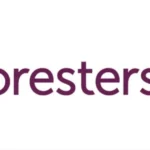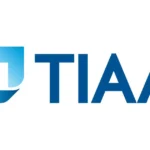Introducion
Starting a credit repair business involves helping clients improve their credit scores by fixing errors and providing financial guidance. It’s a promising venture with high demand but requires understanding of legal regulations and market competition.
A credit repair business helps people fix errors on their credit reports and improve their credit scores. This service can make a big difference in clients’ financial health by correcting mistakes and providing valuable financial advice. If you’re interested in starting a credit repair business, you’ll need to understand the industry and follow legal requirements.
Ready to get started? Learn more about the steps involved and how you can set up your own credit repair business by following this guide. You’ll find useful tips and strategies to help you succeed in this promising field.
For detailed information, explore our guide on setting up a credit repair business. It covers everything from market research to client acquisition, providing you with all the tools needed to start your journey.
Industry Overview

The credit repair industry focuses on helping individuals improve their credit scores by addressing inaccuracies and negotiating with creditors. With millions of consumers struggling with poor credit, the demand for these services is high.
The industry includes a range of services, from disputing errors on credit reports to offering advice on managing debt.
How to Start a Construction Business
Market Research
Conducting thorough market research is crucial to understand the demand for credit repair services in your area. Assess your target market’s needs, analyze local competitors, and identify gaps in the market. Research should include:
- Demographic analysis: Who needs credit repair services?
- Competitive landscape: Who are your competitors, and what services do they offer?
- Market demand: Is there a significant number of potential clients?
Legal Requirements
Navigating the legal requirements is a vital step in starting your credit repair business. This involves:
- Licensing and permits: Ensure you obtain the necessary licenses and permits required in your state.
- Regulations: Familiarize yourself with the Credit Repair Organizations Act (CROA) and other relevant laws.
- Compliance: Adhere to federal and state regulations to avoid legal issues.
Business Plan
A solid business plan is essential for outlining your business’s goals and strategies. Your plan should include:
- Executive summary: Overview of your business concept and objectives.
- Market analysis: Insights from your market research.
- Financial projections: Budgeting, revenue forecasts, and funding requirements.
- Marketing strategy: How you will attract and retain clients.
Business Structure

Choosing the right business structure affects your liability and tax responsibilities. Common structures include:
- Sole proprietorship: Simple and low-cost but offers no liability protection.
- Limited Liability Company (LLC): Provides liability protection and tax flexibility.
- Corporation: Offers liability protection and potential tax benefits but is more complex.
Office Setup
Decide whether to operate from a home office or lease a commercial space. Considerations include:
- Home office: Lower overhead costs but may have limited professional appearance.
- Commercial space: Enhances credibility but involves higher costs.
Ensure you have the necessary equipment and technology, such as computers, phones, and secure internet access.
Software and Tools
Invest in credit repair software to manage client cases efficiently. Look for tools that offer:
- Credit report analysis: Tools to review and identify errors.
- Dispute management: Systems to track and manage disputes.
- Client management: Features for scheduling and communication.
Service Offerings
Define the services you will offer, such as:
- Credit report analysis: Identifying and disputing errors.
- Debt negotiation: Working with creditors to reduce debt.
- Credit education: Providing advice on improving credit scores.
Set competitive pricing and consider offering service packages.
Marketing Strategies

Develop effective marketing strategies to attract clients. Techniques include:
- Building a brand: Create a strong brand identity and online presence.
- Online marketing: Use SEO, social media, and pay-per-click advertising.
- Networking: Attend industry events and build partnerships.
Client Acquisition
Implement strategies for client acquisition:
- Referrals: Encourage satisfied clients to refer others.
- Lead generation: Use online forms, advertising, and partnerships.
- Sales tactics: Develop effective sales pitches and follow-up techniques.
Compliance and Ethics
Maintain high standards of compliance and ethics:
- Follow CROA: Adhere to regulations governing credit repair practices.
- Ethical practices: Ensure transparency and honesty in all client interactions.
- Client confidentiality: Protect client information and privacy.
Staffing and Training
If hiring staff, focus on staffing and training:
- Recruitment: Find qualified candidates with relevant experience.
- Training programs: Develop training programs to ensure staff are knowledgeable and compliant.
- Ongoing development: Provide opportunities for professional growth.
Financial Management
Effective financial management is crucial for business success:
- Accounting: Keep accurate financial records and manage expenses.
- Budgeting: Create and adhere to a budget to ensure financial stability.
- Tax obligations: Stay informed about tax requirements and deadlines.
Customer Service

Excellent customer service is key to retaining clients:
- Communication: Maintain clear and timely communication with clients.
- Resolution: Address and resolve any issues promptly.
- Feedback: Encourage and act on client feedback to improve services.
Growth and Expansion
Plan for growth and expansion:
- Scaling: Identify opportunities to grow your client base and service offerings.
- New markets: Explore entering new geographic or demographic markets.
- Additional revenue streams: Consider offering new services or products.
Additional Tips
- Stay updated: Keep abreast of industry trends and changes in regulations.
- Build partnerships: Collaborate with financial advisors or real estate agents.
- Invest in marketing: Continuously refine and expand your marketing efforts.
Pro And Cons
| Pros | Cons |
| High demand for credit repair services | Regulatory complexities and compliance requirements |
| Potential for significant profit margins | Competitive market with many established players |
| Ability to help individuals improve their financial situations | Potential for challenging client interactions and disputes |
Answer to Key Question
Is credit repair a profitable business?
Yes, credit repair can be profitable due to high demand for credit improvement services. Success depends on effective marketing and client management.
Is it good to build business credit?
Yes, building business credit is beneficial as it helps secure loans, obtain favorable terms, and establish credibility with suppliers and partners.
What licenses do I need to start a credit repair business?
You need to check state-specific requirements, which may include a business license and specific credit repair licenses or permits.
How can I attract clients to my credit repair business?
Use online marketing, build a strong brand, and network with financial professionals to attract clients.
What are common challenges in credit repair businesses?
Challenges include complying with regulations, managing client expectations, and staying competitive.
How can I keep my credit repair business competitive?
Stay updated on industry trends, invest in technology, offer excellent customer service, and explore new opportunities.
Table: Legal Requirements Overview
| Requirement | Description |
| Licensing | Obtain necessary state-specific licenses and permits. |
| Credit Repair Organizations Act (CROA) | Comply with federal regulations governing credit repair practices. |
| Bonding | Some states require bonding to protect clients. |
| Insurance | Consider professional liability insurance. |
Conclusion
Starting a credit repair business involves careful planning and execution. From understanding legal requirements to developing effective marketing strategies, each step is crucial for building a successful and reputable business.
By following the outlined steps and continuously improving your services, you can create a business that not only thrives but also makes a positive impact on clients’ financial well-being.

Hi, I’m Amaliyah-Richard! I’m a dedicated author at Skyvoxes. I hold a Bachelor’s degree in Business, and I love writing about all things business. My aim is to make complex business topics easy to understand and accessible for everyone. Whether you’re a seasoned professional or just starting out, I hope my articles provide you with valuable insights and practical advice.










